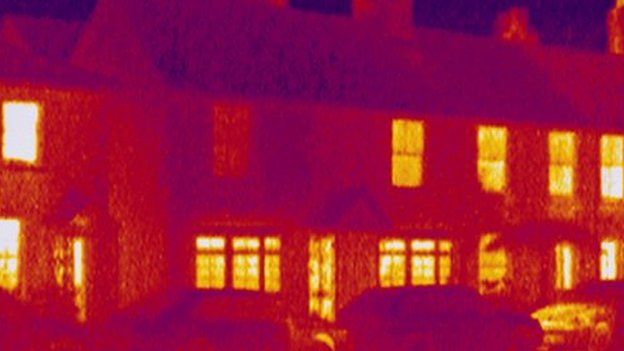New EU energy rules for TVs and other household gadgets
- Published

The EU said reducing the amount of power used by domestic devices will save consumers' money
European Union rules will oblige new networked devices such as modems and internet-connected televisions to switch themselves off when not in use.
Many gadgets are connected to the internet 24/7, using 25-100 watts while their owners sleep.
But new devices sold from Thursday will fall to sleep, using a trickle of power when they are not in use.
The European Commission said the move would save an average household about £32 a year.
The change is part of the EU's Ecodesign initiative, which aims to cut costs, improve competitiveness and reduce carbon emissions.
Energy labels on online products will also be improved, while gas ovens will have to display energy ratings.
The Commission said the best gas oven would typically save £143 over its lifetime compared with the worst.
Critics argue that such regulations - which recently included banning the sale of popular high-wattage vacuum cleaners - are denying consumer choice.
Energy experts have told the BBC that manufacturers deliberately increased the wattage of some vacuum cleaners to make them appear more attractive to consumers - even though the machines produced more heat and noise, rather than more suction.
Coffee machines
The UK technology guru James Dyson backed the efficiency regulations in principle and said many vacuum cleaners could use less power without compromising their ability to clean.
But he said some manufacturers had conspired to skew EU efficiency tests to their own advantage.
The new EU rules even extend to the coffee machine. Drip filter machines with non-insulated jugs must power down 40 minutes after the end of the last brewing cycle.
Domestic drip-filter coffee machines with insulated jugs - which keep the coffee warm and preserve its taste without further heating - must switch off after five minutes.
Coffee drinkers may be alarmed by the changes, but the Commission claims consumers will not even notice, as coffee in drip-filter machines without an insulated jug is undrinkable after 40 minutes anyway.
The Commission says its measures on stand-by devices will reduce energy consumption by almost 75 terawatt-hours (TWh) without affecting product performance.
This will reduce CO2 emissions by 28 million tons, equivalent to the annual emissions of 1.5 million households.
An analysis for BBC last month estimated that the efficiency rules have reduced the average individual's electricity consumption by 10% over five years.
Manufacturers who do not comply with the new rules will be judged by member states.
- Published18 December 2014
- Published2 September 2014